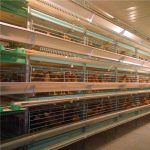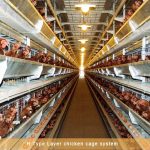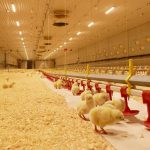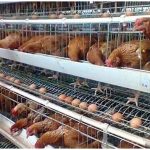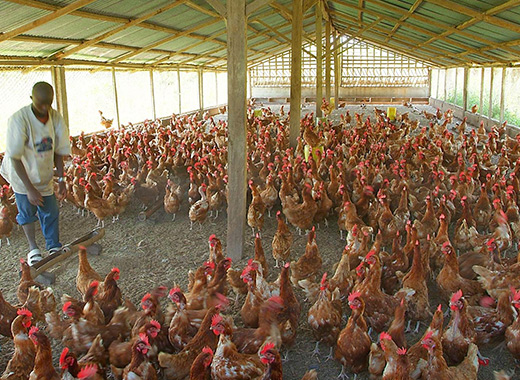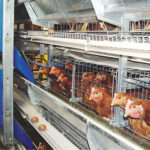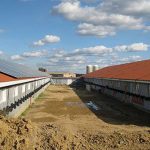In winter, the weather is cold, and chicken farmers often ignore ventilation and ventilation for heat preservation inautomatic poultry farming equipment. In addition, high-density breeding in the chicken house can easily cause hot and humid environments. If the chicken manure is not cleaned in time, harmful gases such as ammonia, hydrogen sulfide, and carbon dioxide are easily accumulated. , Cause broiler ammonia poisoning or cause other diseases, so how to eliminate the problem of high ammonia concentration in winter chicken coops?
First, the harm of ammonia to chickens
1. Ammonia gas can paralyze the cilia of the respiratory tract and damage the mucosal epithelial tissue, make pathogenic microorganisms easily invade, and weaken the chicken’s resistance to disease. After ammonia is inhaled into the
lung, it easily enters the blood through the alveoli and combines with hemoglobin to destroy the oxygen transport function.
2. When the ammonia in the chicken house reaches 20ppm for more than 6 weeks, it will cause breathing difficulties, cough, runny nose, tears, and corneal redness. If it reaches 50ppm, a few days later, the chicken will develop throat
edema, necrotic bronchitis, and lungs. Bleeding, decreased breathing rate, and death.
3. If the laying hens are kept for two months in the environment of 50 ~ 80ppm, the egg production rate will be reduced by 9%; if they are kept for 10 weeks in the environment of 100ppm, the egg production rate will be reduced from 81%
to 68%, In normal environment, it takes 12 weeks to resume normal production.
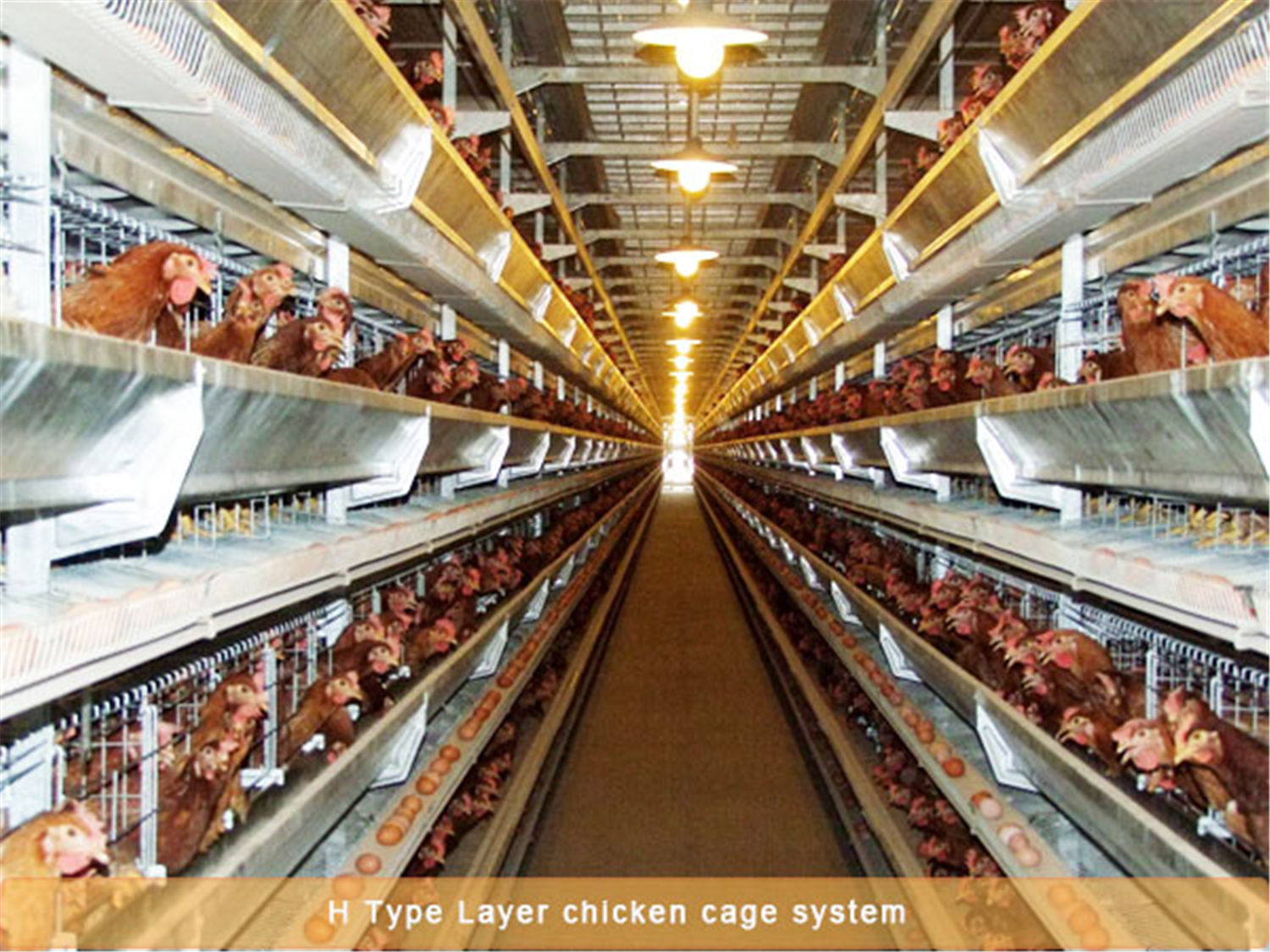
Anti-ammonia measures of chicken house
Under normal circumstances, the allowable ammonia concentration in the chicken house should be less than 20ppm. To prevent the adverse effects of ammonia on broilers, it is recommended that chicken friends do the following feeding and
management work:
1.Remove ammonia manure and litter in the chicken house in a timely manner, especially in high temperature and high humidity environments. Organic matter such as chicken manure should be removed in time to directly eliminate the source
of ammonia gas and ventilate in time to avoid The accumulation of ammonia in the house led to excessive concentrations.
2. Keep the chicken house dry and ventilated. In addition to heat preservation work in winter, pay more attention to the drainage and dehumidification of the house. Regularly open the exhaust fan and increase the ventilation holes to
keep the air in the house fresh. When the ammonia concentration in the house reaches 20 ppm, you can smell a strong ammonia odor, and you need to ventilate immediately.
3. Hang the net bag with charcoal in the henhouse. Use the charcoal’s adsorptivity to reduce the concentration of ammonia in the air, and at the same time, sprinkle some activated carbon, coal slag, quicklime and other bedding materials
on the ground. Reduce or even eliminate ammonia in the air to varying degrees.
Winter and summer are the seasons most likely to cause high ammonia concentrations inbattery cage system for layers price in india, so chicken farmers must manage this aspect well.


